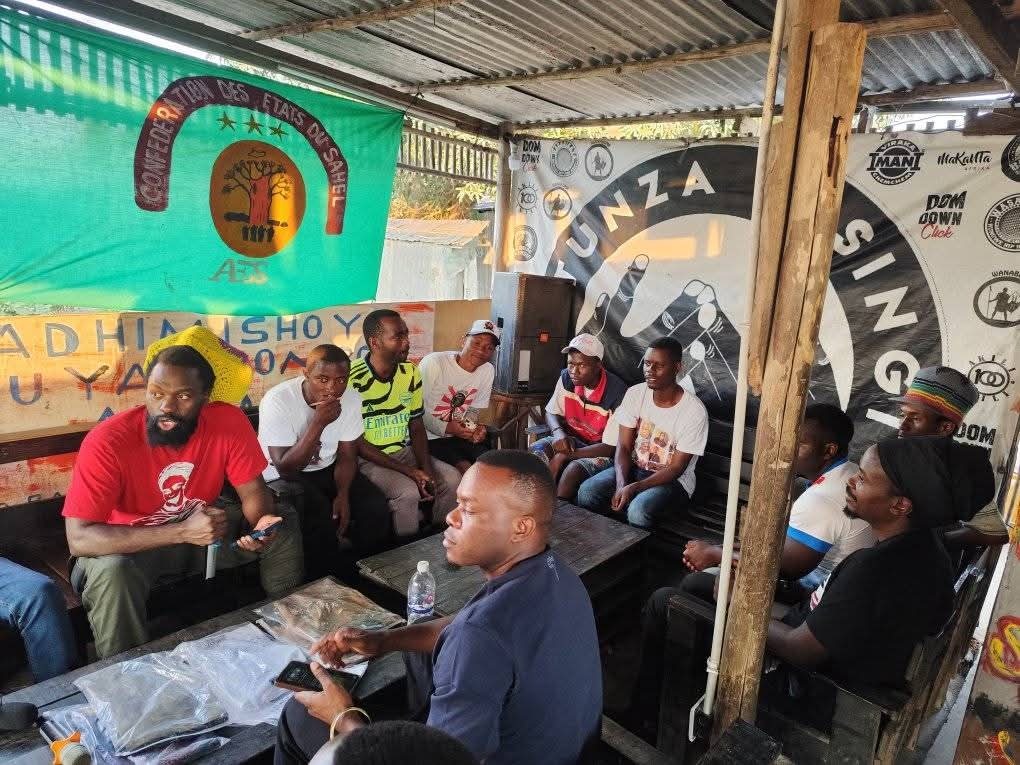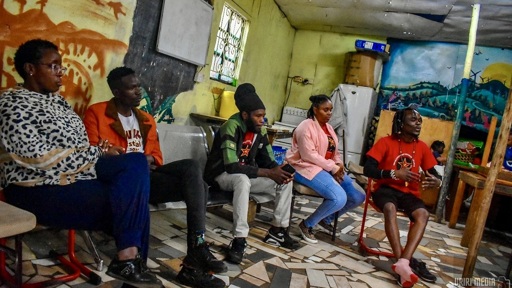Across East Africa, solidarity with the people of the Alliance of Sahel States (AES) is gaining momentum, as activists, intellectuals, and workers draw inspiration from the revolutionary path being charted by Mali, Burkina Faso, and Niger. Various events were held in Kenya and Tanzania to mark the anniversary of the founding of the Alliance of Sahel States (AES) on September 26, 2023.
On September 19, 2025, a forum was convened in Nairobi by the Ngong Social Justice Center Revolutionary Socialist League (RSL) and Ukombozi Library to commemorate the second anniversary of the AES. The event’s theme was “Two Years on: Looking At the Alliance of the Sahel”.
The gathering started with the screening of a documentary on Modibo Keïta, Mali’s first president and a leading Pan-Africanist, produced by African Stream. The discussions that followed highlighted the deep historical links between Keita’s socialist vision and the present-day anti-imperialist wave sweeping across the Sahel. The forum was also enriched by the Tricontinental dossier on the Sahel’s fight for sovereignty that frames this as a struggle not just of states, but of peoples, a continuation of the anti-colonial project of the 20th century, revived by popular mobilization against imperialist intervention.
Read more: Sahel seeks sovereignty: two years on
Modibo Keïta documentary
Modibo Keïta was Mali’s foremost Pan-African leader, a towering yet often underappreciated figure in Africa’s revolutionary socialist movement for independence.
The documentary, produced by African Stream, sheds light on his life, politics, and enduring legacy, situating Keïta within the current wave of anti-imperialist struggle unfolding in the Sahel. As Mali’s first president, he was the region’s first staunchly Pan-African, anti-colonial head of state, committed to industrialization, cultural renewal, and liberation from French neo-colonial control.
The film asks pressing questions: Who was Modibo Keïta? What imprint did he leave on Mali and on Africa’s unfinished quest for unity and sovereignty? In exploring these, it draws a direct line from Keïta’s bold vision to today’s Alliance of Sahel States (AES), where his dream of sovereignty and continental convergence appears to be reawakening.
A second forum, held on September 25 by Ukombozi Library, revisited these theme. Participants reflected on Keita’s enduring legacy; his bold rejection of French neo-colonial control, his efforts to industrialize Mali, and his advocacy for a united, confederal Africa. For Keïta, Pan-African unity was the antidote to the “Balkanization of Africa”, a strategy deployed by colonial powers to keep the continent weak and divided.
Today, the Sahel alliance is carrying forward this legacy. Formed in September 2023, the AES has positioned itself as a bulwark of African sovereignty. Its policies, including the nationalization of key mining resources, the rejection of the CFA franc in favor of a sovereign currency, and the expulsion of foreign military bases, mark a decisive break from decades of dependency.
Tanzania’s call for Pan-African solidarity
Socialist and progressive forces in Tanzania issued a solidarity statement this month, saluting the AES as a “significant force to be reckoned with”. The statement, endorsed by grassroots organizations, framed the Sahel struggle as part of a broader African fight to undo five centuries of exploitation and foreign domination.
 Event held about the AES in Tanzania. Photo: PAT
Event held about the AES in Tanzania. Photo: PAT
“We the working people of Tanzania are deeply inspired by the extraordinary efforts of our ‘blood brothers and sisters’ within the AES as they embark on a transformative and revolutionary path,” the declaration read. It condemned sanctions and blockades imposed on the Sahel states as “attacks on all Africans” and urged regional governments and the African Union to defend the sovereignty of Mali, Niger, and Burkina Faso.
The statement drew historical parallels, recalling how earlier liberation struggles across the continent were undermined by imperialist powers and local elites. This time, Tanzanian progressives argued, the momentum generated by the Sahel must be protected at all costs.
A resurgence of the politics of liberation
For many people in Africa, the Sahel is re-igniting the “politics of liberation”, a tradition that defined Africa’s independence era but was weakened under four decades of neoliberalism. By reclaiming control over resources and rejecting foreign domination, the AES is seen as reviving the unfinished project of economic independence.
“Blockades and sanctions imposed on Burkina Faso, Mali, and Niger constitute attacks on all Africans,” the Tanzanian statement declared, urging neighboring states to guarantee trade routes, protect Sahelian airspace, and resist external coercion.
A continent in need of change
The solidarity gatherings in Nairobi and Dar es Salaam are part of a growing recognition that the Sahel struggle is larger than the region. Across the continent, working people are confronting the failures of neo-colonial governance, rising inequality, and external domination. For many, the AES represents a glimpse of what a new African future could look like, one that is people-centered, sovereign, and unapologetically anti-imperialist.
The Sahel’s revolutionary tide is not without challenges, external pressures, terrorists and the weight of global capitalism all remain formidable obstacles. But as the voices from East Africa and globally gather and extend their solidarity it becomes a shared struggle for the liberation of the continent.
The post East Africa rallies with the anti-imperialist struggle in the Sahel appeared first on Peoples Dispatch.
From Peoples Dispatch via this RSS feed


